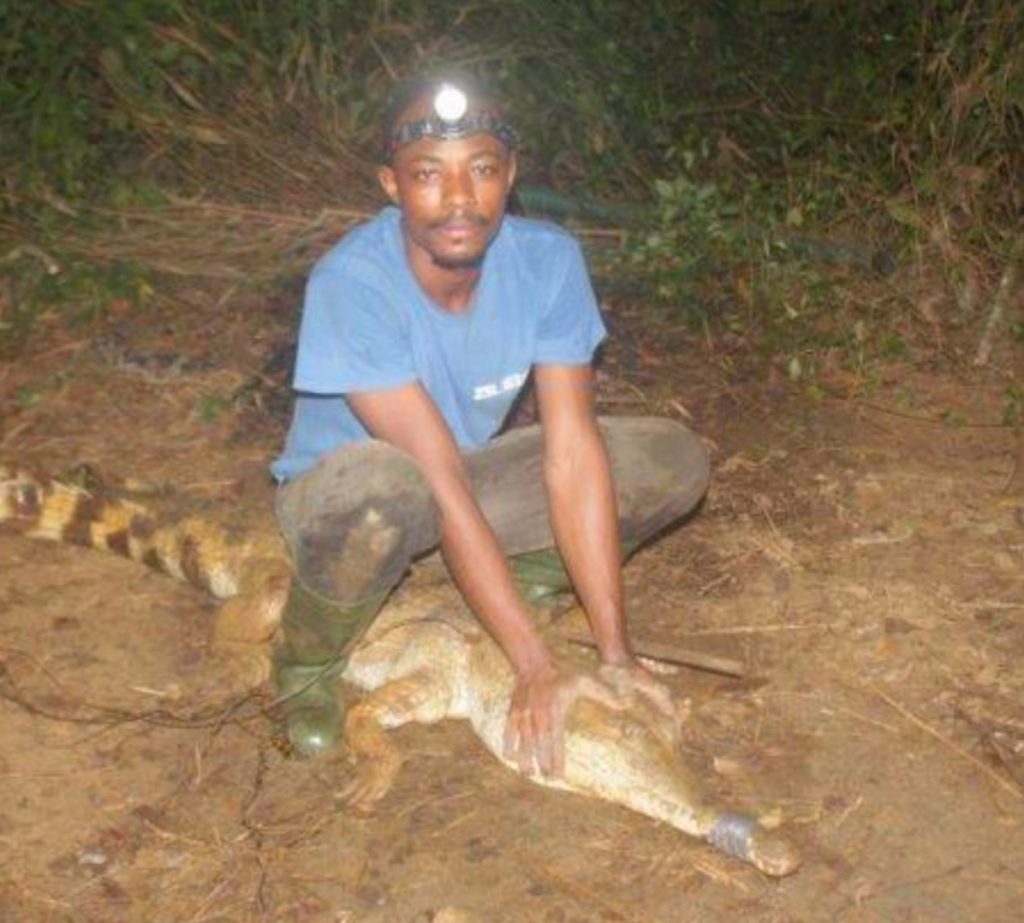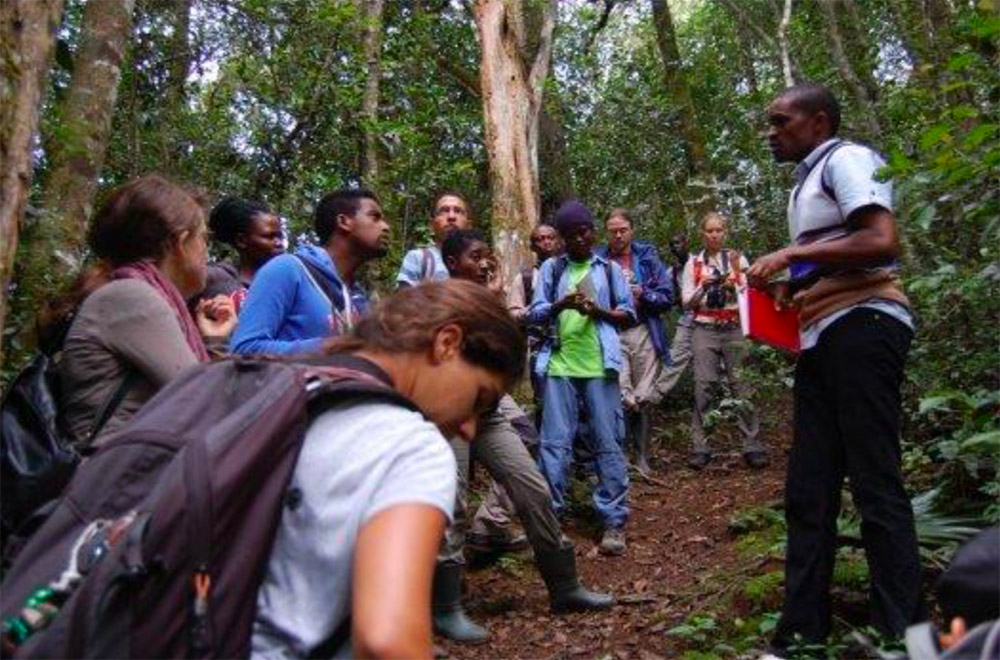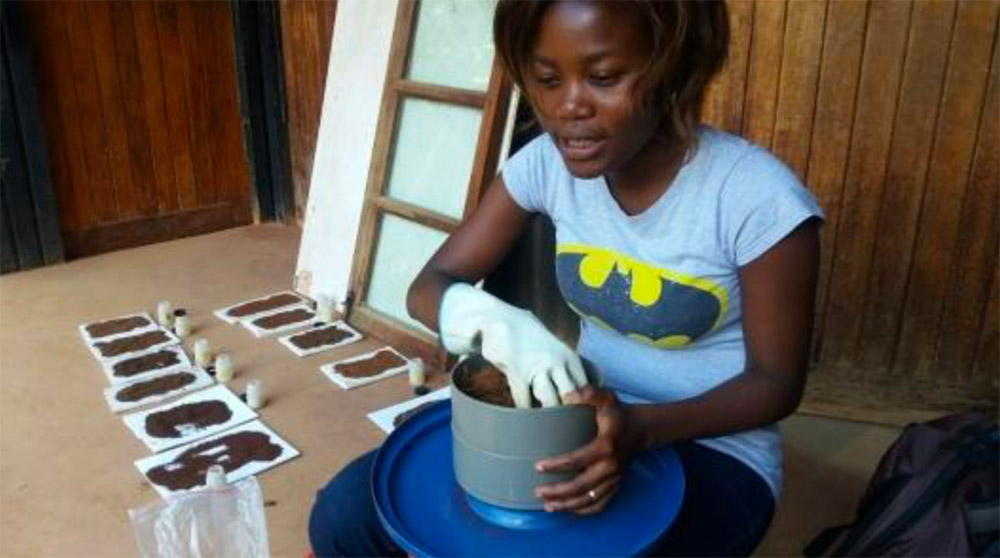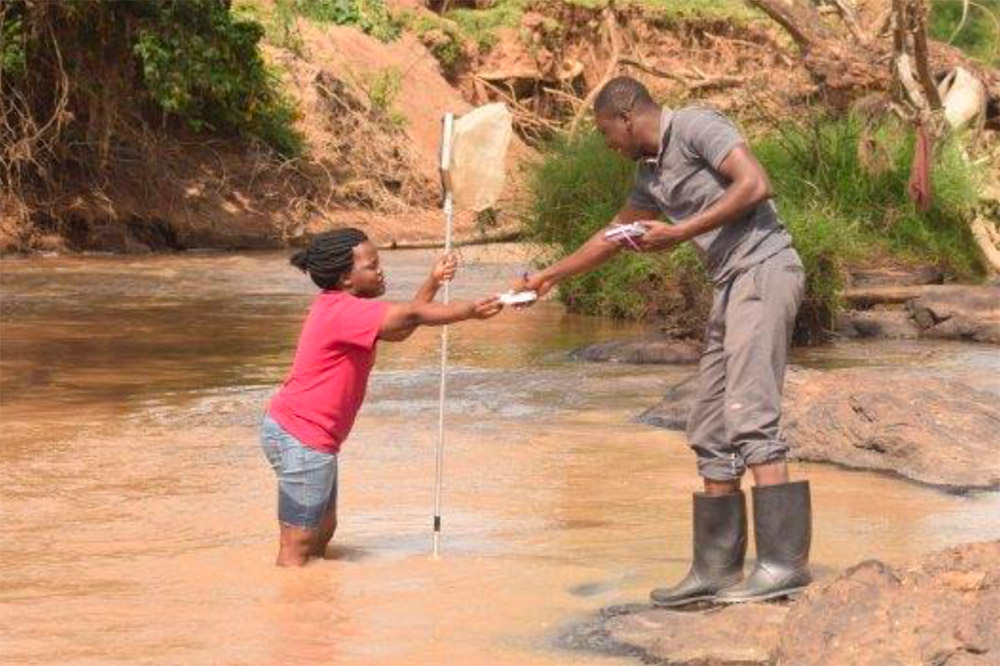
Emmanuel Amoah from Ghana with a West African slender-snouted crocodile


Emmanuel Amoah from Ghana with a West African slender-snouted crocodile
June 7, 2020
Emmanuel pointed out that: “The TBA field course I attended in Amani Nature Reserve in 2017 gave me an in-depth understanding of local community management which is now a cornerstone of my conservation career.” Emmanuel is just one of hundreds of TBA alumni now working throughout Africa – illustrating the principle that African conservation is best carried out by Africans. In contrast to this principle, too often conservation projects are carried out without significantly building capacity of Africans so that they can take ownership of conservation themselves.
The TBA aims to build the capacity of passionate conservation scientists like Emmanuel Amoah, by intensive field training of students who are selected on merit and whose costs are fully covered to attend the courses. The TBA trains students in important skills such as ecological survey techniques and how to quantify the value of existing ecosystems against potential development scenarios. The TBA’s international courses are taught in many different locations in Africa, and half of the students come from all over Africa, and half are (fee-paying) European students. This mixture of different nations and cultures, with individuals all passionate about conserving and restoring nature makes for a powerfully inspirational atmosphere during the courses.

Tropical Biology Association students receiving field training
The TBA has launched the careers of over 2000 environmental scientists from more than 50 countries world- wide. Many are now leading conservationists, or hold senior positions in government and non-governmental organisations. Within their home countries, alumni are leading projects such as wildlife education in Madagascar, conserving endangered frogs in Ghana, preserving forest biodiversity hotspots in Cameroon, and setting up the first scientific training (masters courses) available to university students in Burundi. The far-reaching value of TBA courses means that 30 global universities subscribe to the TBA and support the organisation financially.

A Tropical Biology Association student undertaking soil analysis
I am currently working on developing a new type of course for the TBA, as an intern supported by Van Walt, which will help to build capacity of African participants in protecting water resources for the benefit of wildlife and people. Whilst holistic water resource management, so called Integrated Water Resource Management, has been adopted by many African governments into policy, it is widely accepted that there is an urgent need for more skilled practitioners. The project with the TBA has twofold objectives: firstly, to train practitioners who manage water resources in specific technical skills, and secondly to engage with policy makers through workshops and the TBA’s network to advocate for sustainable water management.
Unlike other projects which are discrete and finish when programme finishes, the training put in place during the course is just the starting point for participants, who it is hoped, will become new generation of leaders in the water sector.

Students collecting ecological data in Tanzania
Oliver van Biervliet
June 2020
We need to make clear, that at the time of writing, there are no ISO or EN standards which deal with the sampling of groundwater for PFAS.
Read MoreEnvironmental monitoring has developed considerably over the years. From the time when a consultant went out monthly or quarterly with a dip tape to monitor the groundwater level in a borehole, wind forward...
Read MoreThe interest in Nitrates is nothing new. One way or another we have been measuring them for half a century.
Read MoreA small selection of our environmental equipment